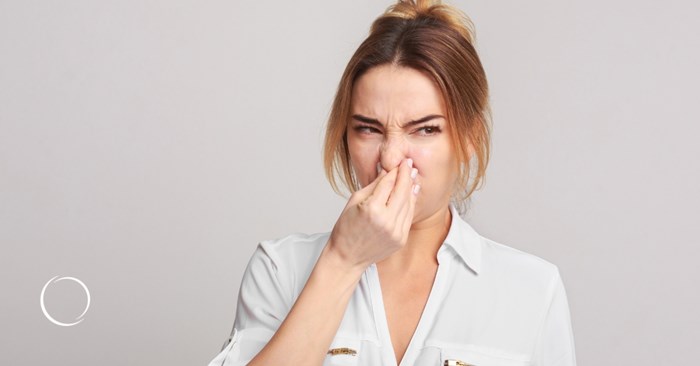Is "BBL smell" real? Here's what you need to know

The Brazilian butt lift, or BBL, is a cosmetic procedure that's no stranger to controversy. From which celebrities have and haven't gotten one, to deaths linked to improperly performed procedures, BBLs have certainly made the headlines and resulted in more than their fair share of trending hashtags over the years.
Most recently, it's the so-called "BBL smell" that has got the internet and socials abuzz, with patients, some plastic surgeons and even a few high-profile celebrities chiming in about it.
BBL smell is said to be an unpleasant odor that some people say they developed after the procedure. It's been described as "musty" and "rancid" and even compared to the scent of a trash bag.
But is BBL smell real? What causes it? And, more importantly, can it be prevented?
We asked ASPS Member Surgeon Michael Keyes, MD, for the answers and his insights on this trending topic.
ASPS: Is BBL smell something you've encountered in your practice? Is it common?
Dr. Keyes: BBL smell is not something I have really encountered in my practice. To be fair, BBL smell is often associated with high-volume fat transfers and not the more conservative "skinny BBLs" that I usually perform. With that said, BBL smell is not a common or expected outcome of a BBL when performed under sterile conditions with proper postoperative care. However, it has recently gained attention due to anecdotal reports on social media, which can sometimes exaggerate or misattribute postoperative experiences.
ASPS: What causes this so-called BBL smell?
Dr. Keyes: The BBL smell is not due to the surgery itself, but rather a consequence of the postoperative recovery. Fat transfers – which are done all over the body, not just the buttocks – are sterile procedures, and there is no odor during the procedure. However, some of the reasons patients may develop an odor after BBL include bacterial overgrowth, poor hygiene, infection and fat necrosis.
Bacterial overgrowth on the skin due to moisture, heat and friction, especially if patients wear the same garment for long periods without cleaning it. Poor hygiene during recovery, such as not wiping well, can occur due to mobility limitations. Rarely, it can be a sign of early infection or fat necrosis, though that usually presents with additional symptoms like redness, fever, increasing pain and/or a firm, tender nodule developing.
ASPS: You mentioned that you usually perform "skinny BBLs." Can you explain what that is and why it may make a difference when it comes to BBL smell?
Dr. Keyes: A skinny BBL is a BBL performed on leaner patients with lower body fat percentages. I typically harvest a smaller volume of fat due to the overall lack of fat in the patient, in addition to less fat required for the transfer. The goal is to create a more natural, proportionate silhouette rather than a dramatic increase in volume – shape over volume.
In my opinion, skinny BBLs reduce the likelihood of odor-related issues for a couple of different reasons. Less volume of fat needed for the transfer means lower tumescent volumes I have to inject during surgery. This usually results in less postoperative fluid drainage, therefore less opportunity for bacterial overgrowth or garment saturation, both of which can contribute to an unpleasant smell if not managed properly.
Because there is less volume injected into the buttocks, personal hygiene (e.g., wiping) is easier to do compared to high-volume transfers, where the shape of the buttocks can make getting into the crevices more difficult. Smaller fat transfer volumes mean less chance of infection and fat necrosis, both of which can contribute to a smell.
ASPS: Is there anything patients can do to prevent or at least manage an unpleasant odor following the procedure?
Dr. Keyes: Yes, there are a few ways patients can reduce the chance of developing a BBL smell after surgery. Gently cleansing the surgical areas with an antiseptic solution as directed. I recommend that patients cleanse themselves with Hibiclens before and after their surgeries until the bottle is empty. I recommend that patients invest in a bidet, especially if they have difficulty wiping after a bowel movement.
Compression garments should be changed and washed regularly, ideally every 24 hours. I recommend that patients purchase a backup garment in order to have something to wear while their garments are being washed. Using clean, breathable dressings or liners inside the garment can help absorb moisture and reduce bacterial buildup.
Professionally performed lymphatic drainage can assist in reducing fluid retention and swelling, which may indirectly help minimize odor. It can also help minimize fat necrosis from becoming encapsulated, which can manifest as firm, tender nodules.
To find a qualified plastic surgeon for any cosmetic or reconstructive procedure, consult a member of the American Society of Plastic Surgeons. All ASPS members are board certified by the American Board of Plastic Surgery, have completed an accredited plastic surgery training program, practice in accredited facilities and follow strict standards of safety and ethics. Find an ASPS member in your area.
